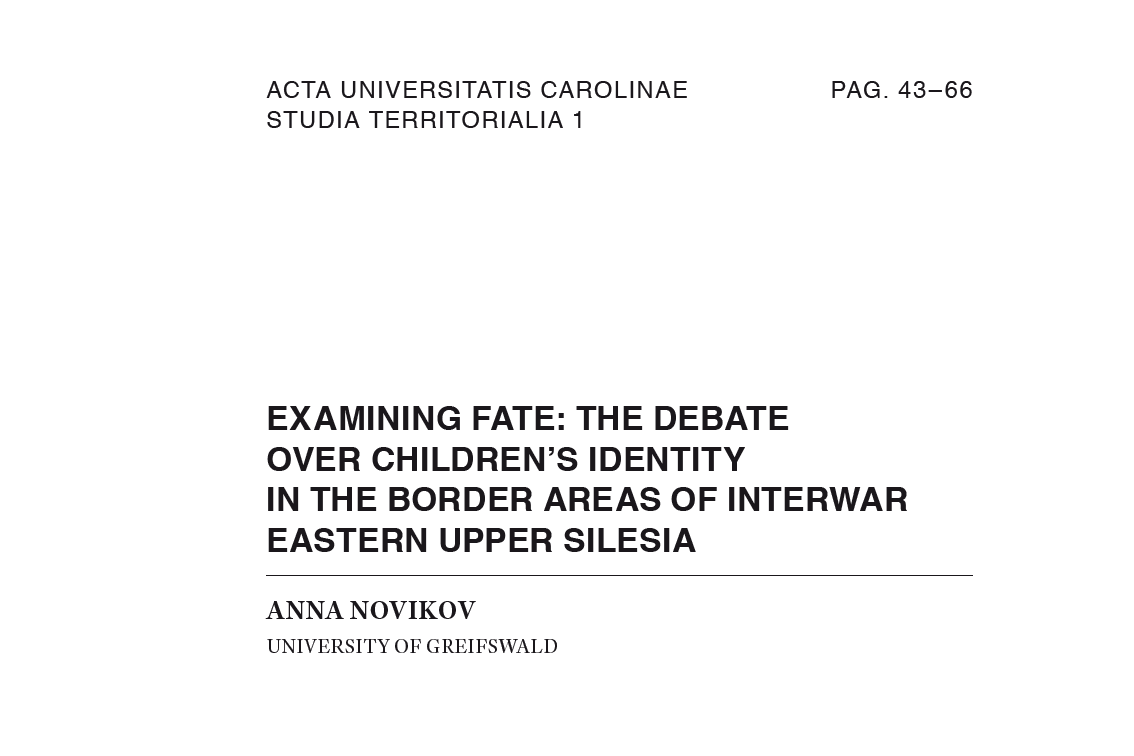In November 2019, the article of Dr. Anna Novikov “Examining Fate: The Debate Over Children’s Identity in the Border Areas of Interwar Eastern Upper Silesia” was published in the Acta Universitatis Carolinae, Studia Territorialia 1.
The article of Dr. Novikov deals with two little-known disputes over the national identity of a population in the interwar border area. This area was transferred from Germany to Poland after World War I as a result of a plebiscite. Its local population, the Silesians, did not consider themselves entirely German or Polish, but still underwent a process of Polonization under international controversy and internal debate within the Polish state about how to define their nationality in the context of their internationally protected rights as a “minority.” As this article shows, the Silesians were utilized by Central and Western European politicians as objects of international diplomacy and by the Polish authorities to advance their internal policies. The story of “Maurer’s children” and Silesian children born out of wedlock illustrates the reaction of the Silesian population to the interwar politics of nationalization. These cases attracted international attention and brought questions of national minorities, bilingual children, and self-definition of nationality vis-à-vis the state’s requirements to the level of international debate.
These nationalization processes happened not only to the population of Eastern Upper Silesia, but also to almost every other minority whose national-linguistic identity, which sometimes was inculcated by force, became a tool of international or domestic politics, and for achieving its own aims. This article advances a broader, transnational interpretation of the questions of self-definition that were common to border societies within the successor 66 states in the whole area of Europe, but especially Central Europe. It traces the inculcation of nationality from “above” in the daily life of a border minority. In so doing, it examines the phenomenon of nationality and how it is created, taking into account the flexibility and uncertainty of the nation-building process and its dependence on both international political and diplomatic decisions and the internal situation within the state. The lessons of this case study are applicable not only within the specific successor state, Poland, but in many other parts of Europe. Questions of self-definition, when that is different from the national authorities’ definition, and of state-enforced inculcation of nationality are highly relevant to many regions of the world. In her article, Dr. Novikov has clarified how national identity is self-defined, and how it originates from motives that are far from clearly national and ideological.

